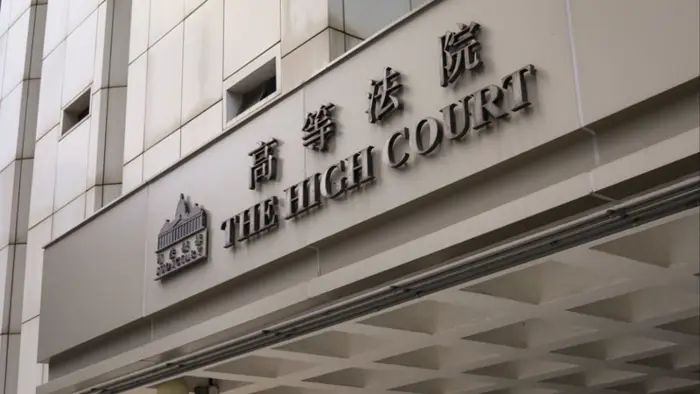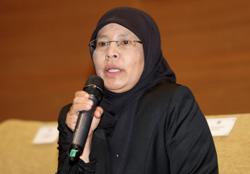Hong Kong father who shook three-year-old daughter to death jailed for life
A Hong Kong father has been sentenced to life imprisonment after being found guilty of murdering his three-year-old daughter by shaking her to death in 2020, with a judge slamming him for using aggravated violence against a defenceless child.
Madam Justice Anna Lai Yuen-kee passed the mandatory life sentence for murder on Lau Kai-ping, 42, after he was convicted of killing Leung Nga-sze in July 2020 by the High Court jury last week.
The defendant had 12 previous conviction records and was only released from jail a few months before he committed the murder. He served a 20-month jail term for wounding Nga-sze’s mother by splashing corrosive liquid onto her and was released in April 2020.
Do you have questions about the biggest topics and trends from around the world? Get the answers with SCMP Knowledge, our new platform of curated content with explainers, FAQs, analyses and infographics brought to you by our award-winning team.
He admitted holding Nga-sze’s shoulder and shaking her a few times on the morning of July 18, but said he was not aware that such action would harm her.
Hospital doctors found signs of bleeding beneath the girl’s skull and in her retinas, along with old bruises on her inner thighs. She was suspected of suffering from shaken baby syndrome and died on July 29.
Lau admitted to a count of child abuse and wanted to plead guilty to manslaughter, but the prosecution insisted on charging him with murder.
Judge Lai said she believed that Lau continuously abused Nga-sze when he was staying with the girl and her mother, Helen Leung, between May and July.
“He committed the violent abuse just 1½ months after he was released from jail. And this time, it was even more serious, as he targeted a defenceless child to exert violence,” she said during the sentencing.
Leung earlier told the court that Lau was strict with the daughter and requested her to follow his parenting style, with different corporal punishments involved.
She testified that the defendant had grabbed his daughter for no reason and shaken her for about 10 seconds on at least eight occasions. He had also held her upside down so her head hit the floor and doused her with cold water in the shower.
Although the girl was protected by a child protection order from the Social Welfare Department, Leung admitted that she let Lau meet the girl and stay with her and hid the truth from the social workers.
The court heard that the girl, who stayed in a foster care home for the first two years of her life, was behaving and well loved by the defendant’s family.
Audio messages submitted as court evidence showed that she had sought hugs from her father and asked him to come back home after the parents fought. But according to the defendant’s reply, he turned down the daughter.
Despite having a rough relationship with Lau, Leung admitted that she did not want to break the family apart and kept convincing herself to “try” to mend the fences with him.
The mother brought Nga-sze to live in the paternal grandparents’ home after Lau was released. In May 2020, she took the child back to her Sham Shui Po flat, where the defendant subsequently moved in.
The judge said social welfare authorities could not have predicted that Leung would secretly let the father, who had a history of violence, live with Nga-sze.
“[Her] decision indirectly caused the tragedy to happen,” Lai said, noting that the abuse led to the girl’s death.
The judge said she believed that the defendant’s violence had escalated since he was out of his parents’ sight and started spending most of his time in Leung’s flat.
Video evidence captured how Nga-sze interacted with the defendant, with some parts showing that she was forced to smile in front of the camera.
“Although there was some short period of enjoyment, there was also unbelievable and atrocious behaviour,” Lai said, adding the defendant made unreasonable demands of the girl.
Lai noted that Nga-sze was a healthy and active child when she was in foster care. After the mother was reunited with the child, Leung only hit her twice when she was enraged, with no evidence suggesting she had caused stress to her daughter.
A paediatrician’s report said that the child’s thymus gland, an organ located in the upper chest under the breastbone, was severely decayed, indicating that she had suffered from toxic stress caused by long-term damage to her mental and physical being.
The judge found that the defendant’s constant abuse of the child was the main cause of her deteriorating health. If the child had not died, she would have suffered for a long time, Lai added.
She passed a jail term of six years and five months for the child abuse offence and ordered it to run concurrently with the life imprisonment.













Leave a Reply